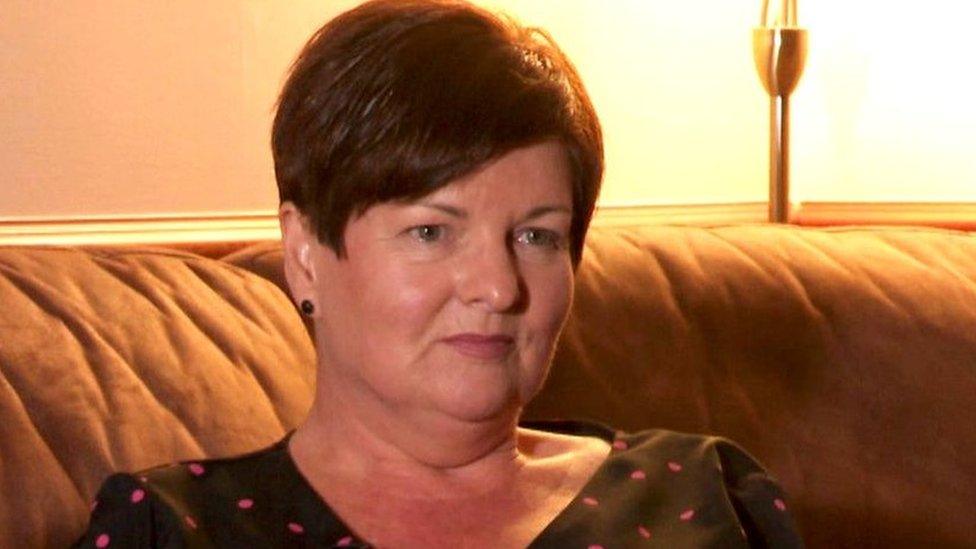1 in 3 infected with HIV in blood scandal was a child
- Published
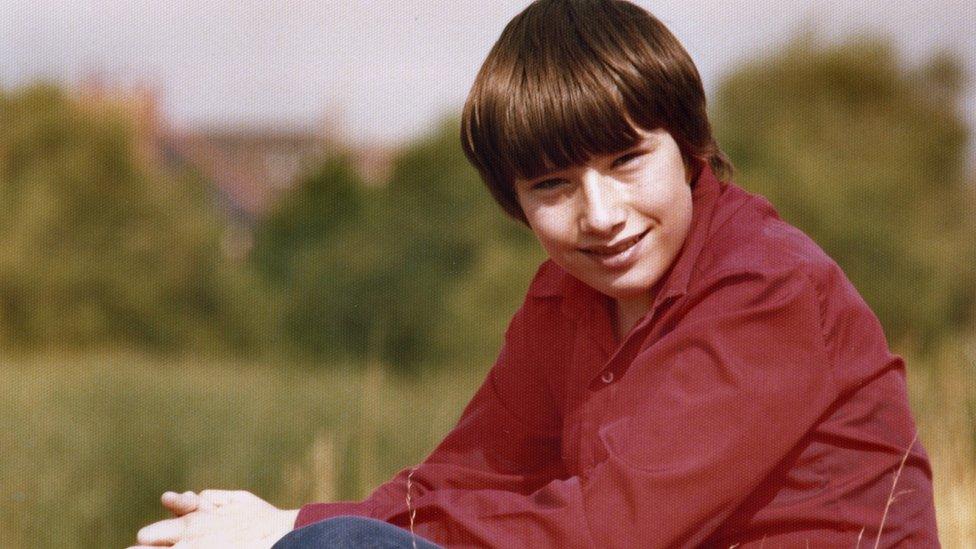
Richard Warwick was infected with HIV when given contaminated blood products as a child
Almost one out of every three people infected with HIV through contaminated NHS blood products in the 1970s and 80s was a child, research has found.
About 380 children with haemophilia and other blood disorders are now thought to have contracted the virus.
The new estimate was produced by the public inquiry into the disaster, external, after a BBC News report into the scandal.
In August, the government agreed to pay survivors and the partners of those who died compensation.
The first interim payments of £100,000 per person were made last month.
The initial agreement does not cover bereaved parents or the children of those who have died.
A wider announcement on compensation is expected when the inquiry concludes, next year.
Between 1970 and 1991, 1,250 patients with blood disorders were infected with HIV in the UK when given Factor VIII - a new treatment that replaced the clotting protein missing from their blood.
About half died before life-saving antiretroviral drugs became available.
Tens of thousands of others are believed to have been exposed to hepatitis, which can cause liver failure and cancer, through the same treatment or a blood transfusion.
Previous estimates for the number of children infected were based on documents referenced in the national archives.
The files, from November 1990, showed at least 175 children infected with HIV had qualified for a financial settlement after bringing a legal action against the Department of Health.
But after BBC News reported that figure, in October, staff at the public inquiry worked to produce a more accurate estimate.
And they have now concluded, based on three separate sources, about 380 children were infected.
When the new estimate was read out at the public inquiry, there was an audible gasp from some survivors and relatives.

'Absolutely heartbreaking'
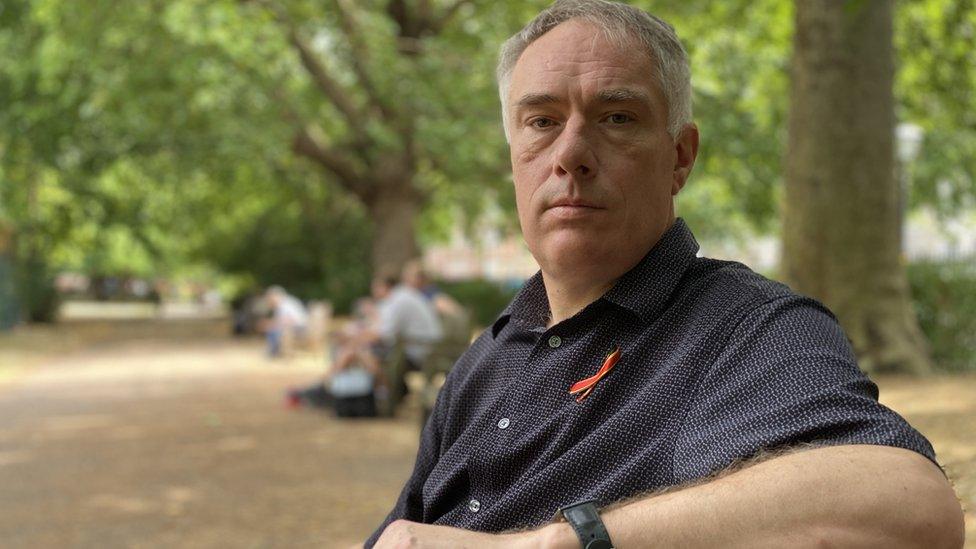
Richard Warwick was infected with HIV and two forms of hepatitis as a young boy.
He was one of more than 120 pupils with haemophilia at Treloar College, a specialist boarding school in Hampshire, in the 1970s and 80s.
At least 72 of them died after being given contaminated blood products at a centre run by NHS staff on the school site.
"We lost so many friends from Treloar's - it was absolutely heartbreaking," Mr Warwick told BBC News.
His medical records show he first tested positive for HIV in December 1984, aged 19, but was not told about the diagnosis for another three years.
"We have now been bombarded with so many horrible statistics that it gets to the point where it starts to wash over you," he said.
"We can't bring those friends back - but we can still try and get answers for the families of the children who have died."

The UK was not self-sufficient in blood products in the 1970s and 80s, so Factor VIII concentrate was often imported from the United States.
Each batch was made from the blood plasma of thousands of donors.
Drug companies in the US paid donors - including some in high-risk groups, such as prisoners and drug users.
And if just one was HIV positive, the virus could be transmitted.
Haemophilia Society chief executive Kate Burt said: 'We know that some very young children with bleeding disorders were given high-risk factor-concentrate treatment from mid-1983 onwards, which went against guidance at the time.
"As a result, some parents have had to live with the unbearable question of whether their child's death or infection could have been prevented."
You can follow Jim on Twitter, external.
Related topics
- Published22 October 2022
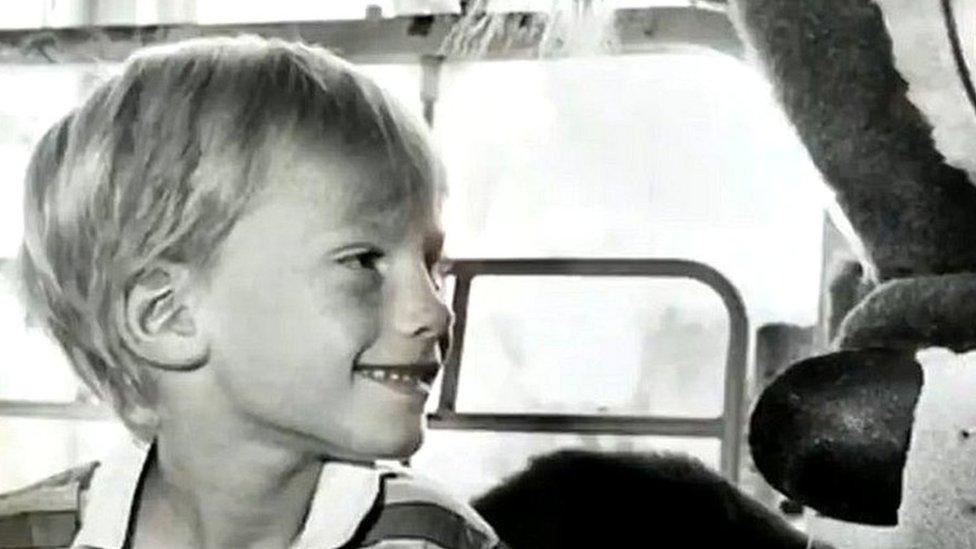
- Published27 July 2022
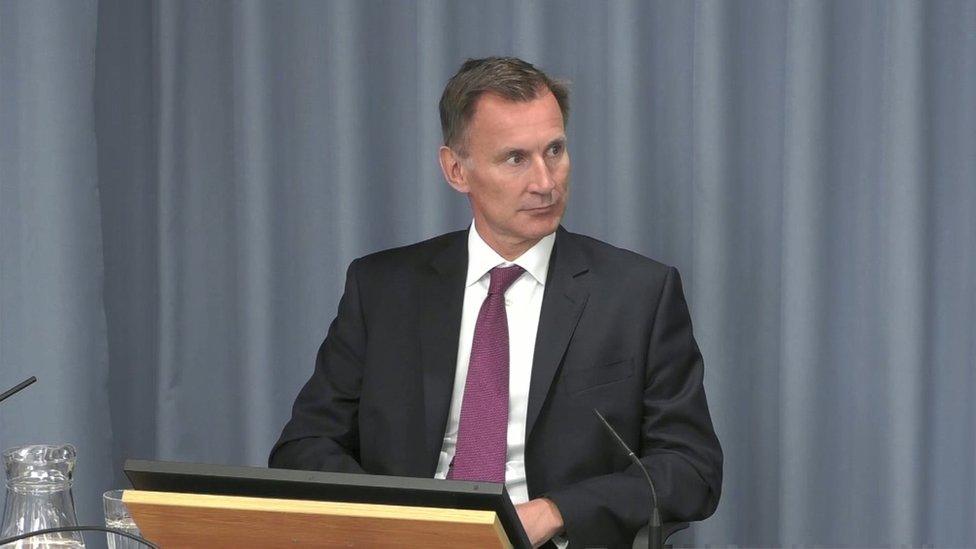
- Published19 January 2022
